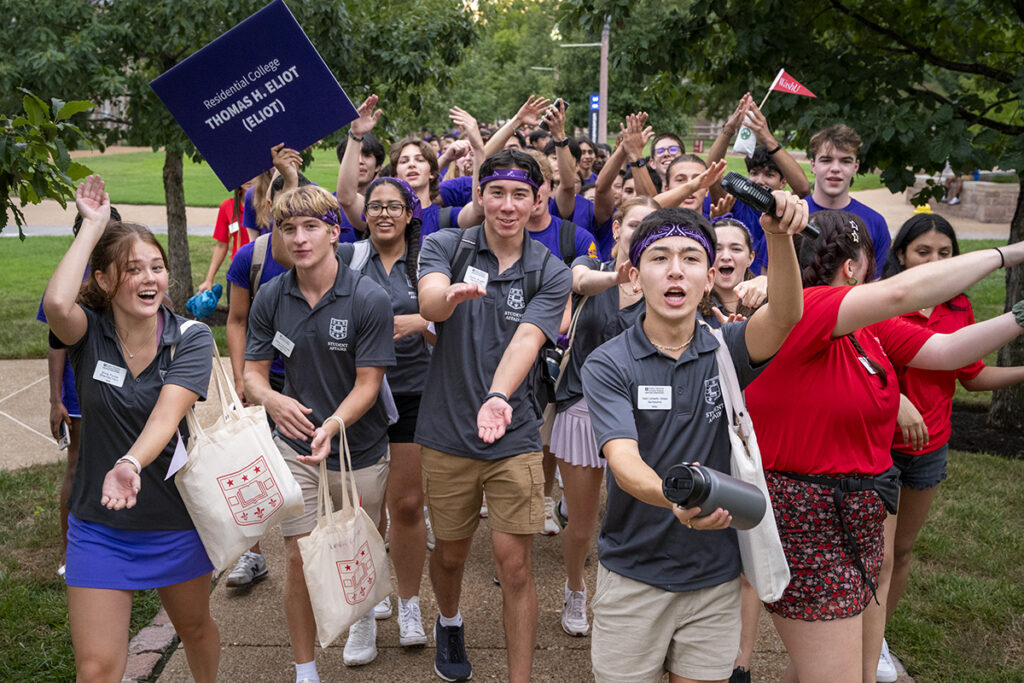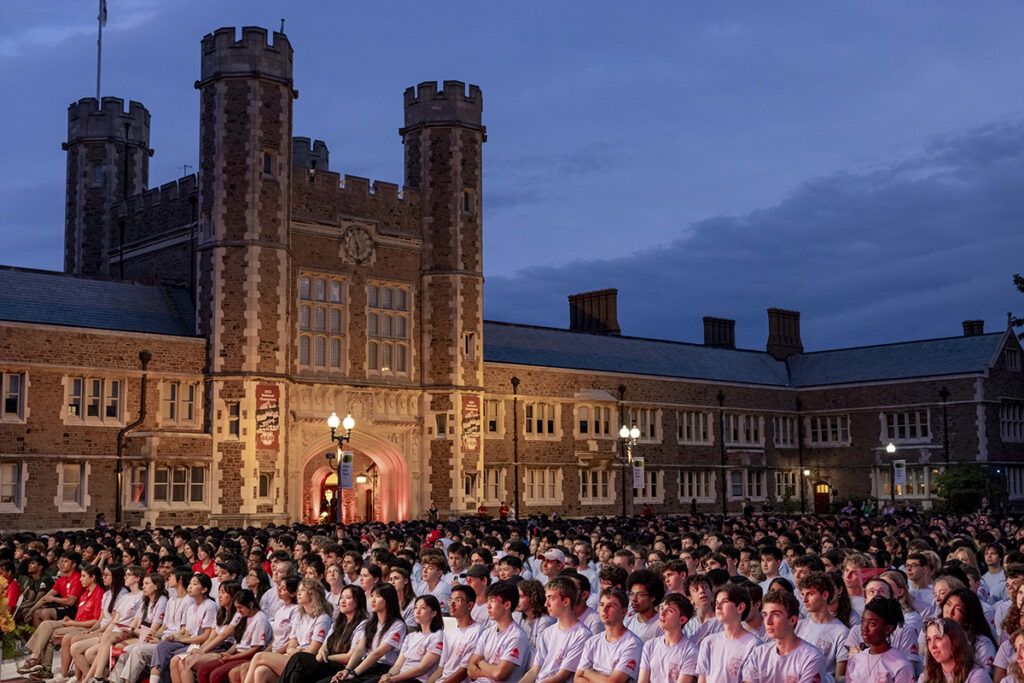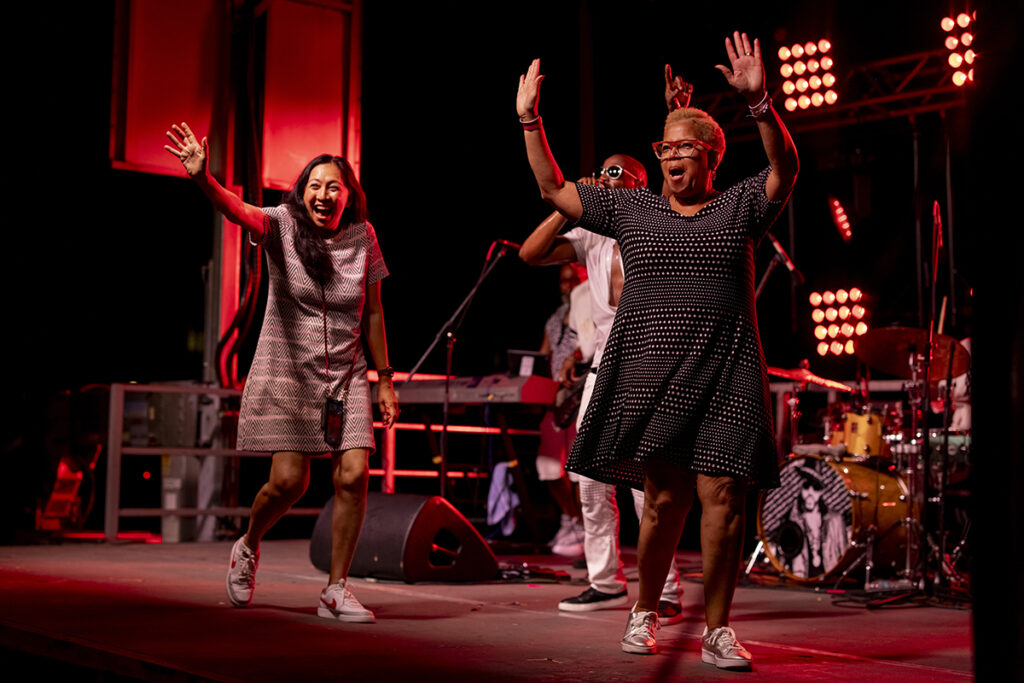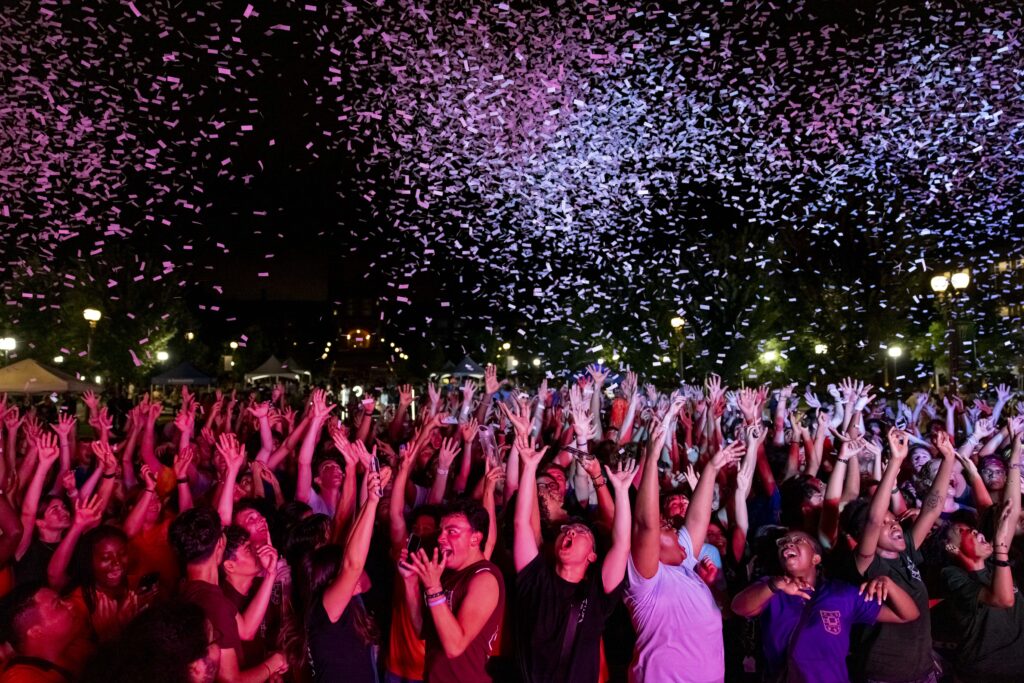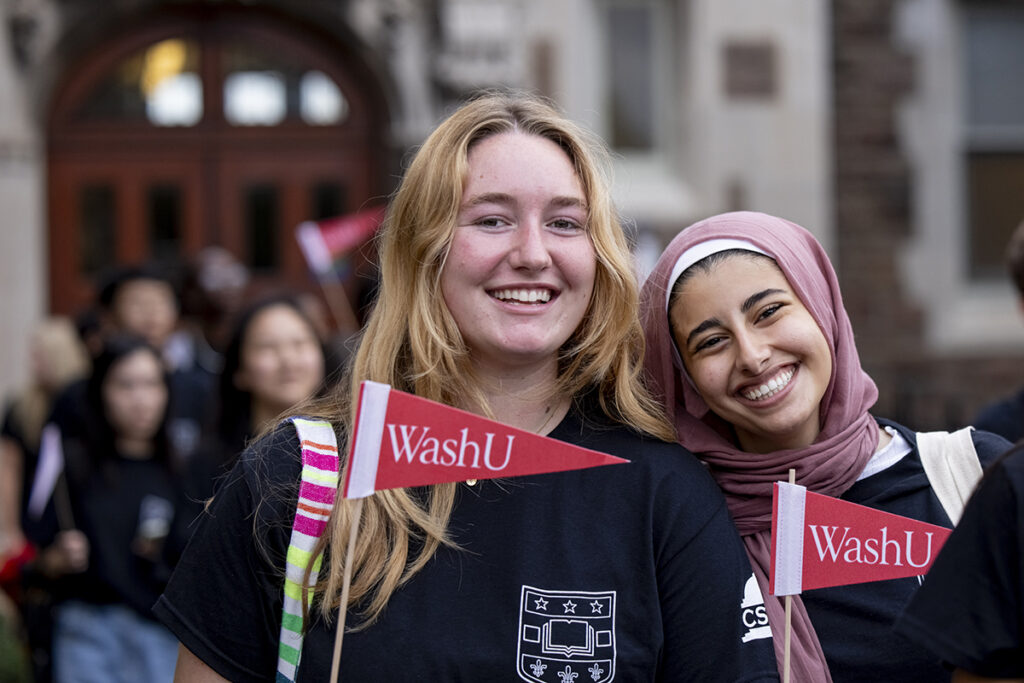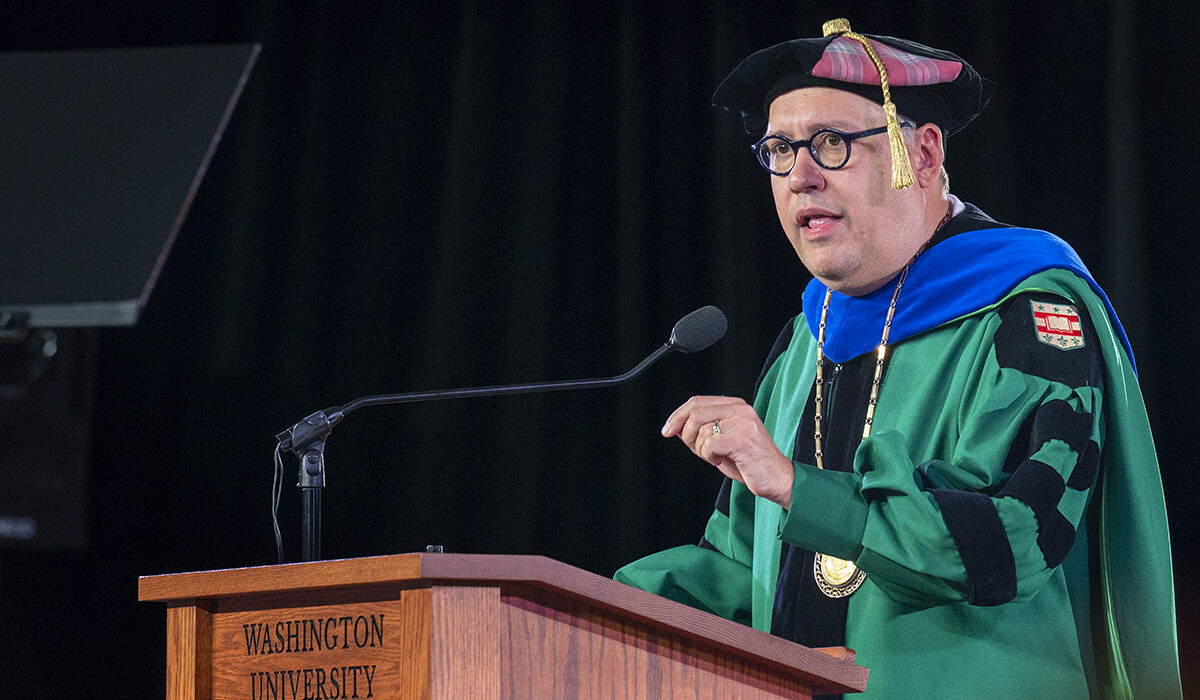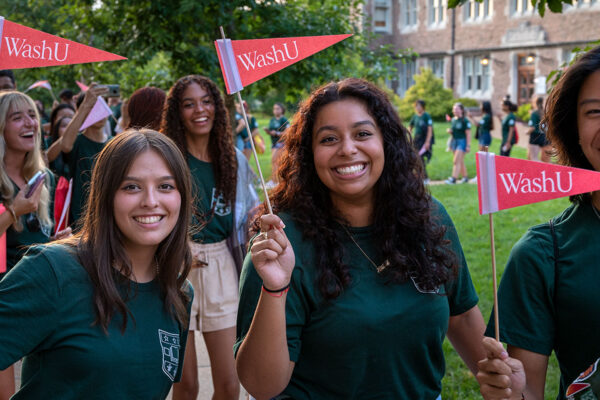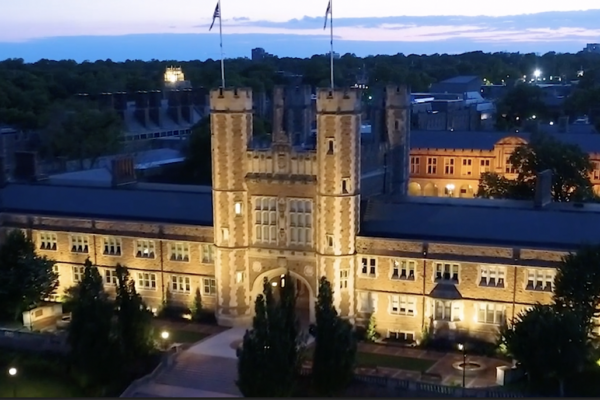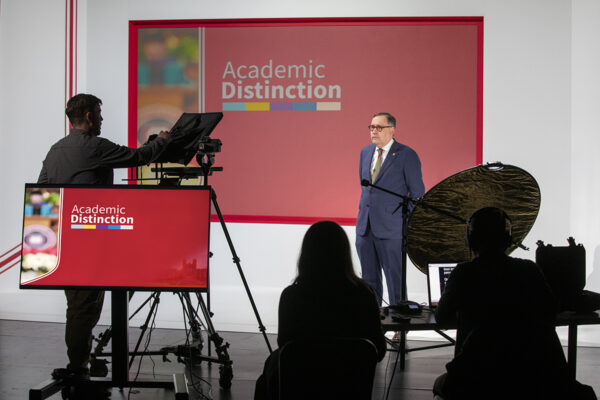In a moment when freedom of expression is under attack on American campuses, Washington University in St. Louis Chancellor Andrew D. Martin urged the Class of 2027 to fearlessly explore their ideas and encourage others to do the same.
“We are all on a path of learning here at WashU and we all deserve to learn in an environment of respect and empathy,” Martin told students at Convocation Aug. 26 in Brookings Quadrangle. “We all deserve to feel at home here — when we’re right and when we’re wrong.”
A beloved campus tradition, Convocation is the university’s official academic welcome for first-year students. The 1,834 members of the Class of 2027 entered the Quad wearing the colors of their residential colleges and cheered their res college cheers. One by one, university leaders welcomed the students to their new schools and new campus. Still, Martin stressed that home is more than a place — it’s “a state of living alongside others as your authentic self, integrating your identities with your passions and academic pursuits.”
“Regardless of our cultural differences, our religions or political viewpoints, our varied upbringings, or our personalities and identities — we are all seeking truth here at WashU,” Martin said. “Seeking knowledge, progress, growth and justice. We are all building this home together.”
Since his arrival in 2019, Martin has reaffirmed the university’s commitment to freedom of expression. Martin created the undergraduate course “Free Speech on Campus,” where he explored the importance of free speech and academic freedom at a university. And recently, Martin worked with Anna Gonzalez, vice chancellor for student affairs, to launch “Dialogue Across Difference,” an eight-week course that teaches undergraduate students how to explore difficult topics such as politics, religion, race, gender and socioeconomic identity in a positive and productive way.
“You may have heard of other institutions where individuals or groups seek to limit the types of questions students and professors can ask. They do so because they don’t want to contend with the implications of the potential answers,” Martin said. “These challenges to freedom of inquiry aren’t limited to any one side of the political aisle and they are always antithetical to who we are and who we wish to be. I believe that the highest use of free speech is to search for the truth. If we’re afraid to ask questions about history, or identity, or anything else, our work no longer serves our mission, as described by our motto, ‘per veritatum vis,’ or strength through truth.”
